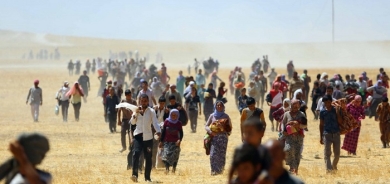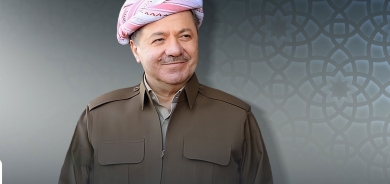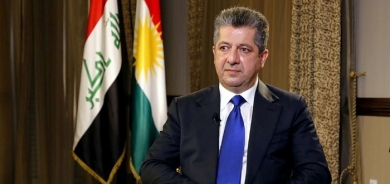Iran as Perilous Player in Current Iraq’s Situation
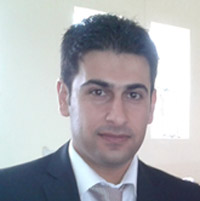
Ideological warfare
After the revolution of Iran in 1979 the relations between both states (Iran and Iraq) reached the worst and risky stages. This is due to Ruhollah Mostafavi Moosavi Khomeini – the Iranian religious leader, revolutionary, and politician, and leader of the 1979 Iranian Revolution – established a very radical structure policy under the theory of the Shiite ideological strategy (Baqer Moin 1999). Simultaneously, Iraq under the Saddam Hussein authority –the Sunni ideology’s follower– perceived that this Iranian Shiite-strategy would greatly influence the Iraqi national and security stability. This is because the large number of Shiite followers inhabit in south and middle of Iraq and that they might been easily incited by Iranian ideological pathology. Thus (partly) led Saddam to rapidly react and call for military warfare against Iran in 1980, only one year after the Iranian revolution. Consequently, Saddam and Khomeini severely revived the history of ideological challenge (Sunni-Shiite warfare). That was gradually influence every individuals in Iraqi and Iranian societies in general and Shiite-Sunni communities in particular that ultimately structured for growth a very danger radical generation.
With the demise and topple Saddam’s regime in 2003, the new players (Shiite and Kurdish) dominated the Iraqi authority and created new political atmosphere that in some respect served the Iranian interests and objectives. However, this paper should not neglect the reality that during that time (2003-2011) Iran had faced great struggle with presences of the US power in Iraq, which US used various systematic methods to curb the stage of advances the Iranian’s influences on Iraqi’s politician. But according to some Iranian national security perspective the US strategic policy in Iraq has not had such a strong influences on Iran that Iran see itself in pivotal interest line: because on one hand, Iran had been survived form its previous tough enemy (Saddam’s regime) and simultaneously the US could not create the same obstacle for Iran as Saddam regime did; on the other hand the advance of Shiite power that become a top priority for Iran’s impact on events in Iraq. Since 2011, with the withdrawal of US Military Forces from Iraq, Iran has triggered with further advances its ideological strategy method regarding Iraq (Fatima al-Smadi 2014). But the question might be raised, dose Iran in right truck?
This Iran’s policy was called “soft policy”, the prior consideration behind this policy was only to enhance the role of Shiite bloc in Iraq with regarding Iran’s interests. The consequences of this policy came to view during the authority of Prime Minister Nouri al-Maliki. That since 2009 Maliki systematically – under the Iran watchdog – marginalized the Sunni community in Iraq (Wilgenburg 2012). But both states (Iran and Iraq (Maliki government)) have not reached their ambition that ultimately paid high costs; this is because the Iraqi Sunni followers could not simply digest this policy and eventually led the Iraqi government to face the Sunni severe resistances.
The Sunni aggressive has reached the point, which they prefer and accept the terrorist organization authority rather than the Iraqi government. Because, Sunni translated and viewed the Iraqi government only as a proxy of Iran and that only serves the Shiite advantages. When the Islamic state in Iraq and Levant (ISIL/ISIS) advanced its power in the Sunni territories in northern of Iraq, Iran rapidly responded through providing various assistance to the Bagdad government and Shiite Militias as well as Iran motivated Shiite voluntary fighters in Iraq to stand and fight against Sunni and ISIL fighters. This Iran’s policy has further increased the Sunni resistance and aggression against the government of Iraq. The political analysis for Middle East understand the prior objective of Iran –fight against Sunni and ISIL fighters– under two fundamental segments: firstly to protect the Shiite authority in the Iraqi government and secondly, to keep the Shiite shrines (in Karbala and Najaf) safe from the Sunni and ISIL’s offensive (Ghanbar Nader 2014).
This can be concluded that the Iran ideological policy had headed toward the wrong direction, this is because Iran with this policy has paved a way for advancing the power of Sunni bloc and possibly the creation of Sunni state in near future that the latter will undoubtedly post significant threats to Iran’s national security.
Economic interest
The Iran’s economic interests in Iraq can be comprehended as another critical strategy point. Since last decade, the Iranian government very importantly and consciously looking to the boosting its economic trade with Iraq. The simple reason behind this: on one hand Iran wants to fulfil some of its local economy’s requirement from regional states, this came to ground, in particular when Iran been isolated from the economic trade with world states through been imposed sanction by the UNSC and Western countries in 2006 (UN 2014). On the other hand, Iran has long border (1599 km) with Iraq (CIA 2014). Thereby Iran can very easily export its products to Iraqi market. The volume of economic trade between the two states in 2009 reached seven billion dollars and by 2013 this amount exceeded to 12 billion dollars, fifty percent of which is not depended on oil industries (Naseer 2014).
The improvements in Iranian exports exceed those form other states and are focused on cheap food products and costumer goods. Iran also provides Iraq 10% of its electric power needs. Iraq has become the main destination for Iranian visitors, whose number swelled to around millions of Iranian Shiite visiting holy sites (Mushtaq Mohammad 2014).
Regional states contest
Iraq in the post-Saddam with its new identity and power structure has changed the geopolitics of region and approach adopted by middle-Eastern actors. The political instability and lack of security in Iraq creates great opportunity for regional states to increase their attempt for regional sovereignty. Each of them has used various ways to diminish the role of its competitors in Iraq. In this regard, Saudi Arabia, Turkey and Iran lead the top contestants and become a major players in Iraq as well as each of them very precisely and seriously working on that line of how to use the Iraqi situation to serve their own interest and objective (Ali Akbar Assadi 2008). The objective and interests of these actors are interpreted in frame of gaining the regional sovereignty, economic ambition as well as maintain their national security. Saudi Arabia and Turkey have not been happy with the new power authority (Shiite and Kurdish) in Iraq after 2003, because both states (Saudi Arabia in particular) consider that these new players are acting against their objective in Iraq. Based on this comprehension, Saudi Arabia and Turkey have used various strategic ways to create difficulties for Iraqi government. These difficulties can be delineated in context of their assistance for the Iraqi government resistant groups, namely Sunni insurgencies and terrorist groups (RT news 2014, Dlsoz Hawrami 2014). The only reason behind these two state’s strategy is to curb the advancing the Shiite’s role in Iraq, this is due to the reality that Shiite is working according to the Iranian ambitions. As aforementioned above, Iran to reach its power and objective only focuses on Shiite bloc (Iran’s backing) and Iran has also used various systematic methods to undermine the role of Sunni bloc in Iraq. But, here the question might be raised, why Iran is co-operating the Kurdistan Region Government (KRG) in current war against ISIL, while the majority Kurdish follows the Sunni ideology?
There are three dimensions can be considered:
The first dimension, Iran does not want the Sunni fighters to be near to its territory. At the current moment, the only force on the Iraqi ground has ability to stop the ISIL and Sunni offensive is the KRG forces (Peshmarga). Thereby, with the ISIL early offensive in Iraq, Iran rapidly responded and provided military and logistic assistance to Peshmarga. In some area the distance between Iran territory and ISIL fighters is only few Miles, in particular when the ISIL captured both Jalawlah and Saaiydiyah towns in 13 June 2014. Therefore, Iran is very concern with ISIS’s advances power and it wants Peshmarga to remains in power to keep the Sunni fighters away from its territory.
The second dimension is reflects to Iran’s national security. According to the Iranian intelligence’s perspective, if the KRG fails to protect its territory from ISIL’s offensive, then the Kurds in Iran would probably cross the border to assist the Iraqi Kurds and these Iranian Kurds will eventually create critical threats to Iran’s national stability.
The final dimension reflects to the creation of Kurdistan statehood. In this respect, Iran is very concerned and sensitive when it comes to the Kurdish independence because it sees the Kurdish statehood as major threat to Iranian national security and territorial integrity. In this regard Iran has sporadically sent various messages to the KRG leadership indicating that, without Iran’s backing, the KRG would not be able to approach its goals; occasionally, Iran warned that even America could not overrule Iran’s power in the Kurdistan region (Abdulsalam 2012). Therefore, this Iranian assistance is viewed as a new alert message for Kurdish leadership, in particular when Massud Barzani the current president of Kurdistan Region called for independent referendum in a few month ago.
To sum up, this paper has analysed different reasons behind the role of state of Iran in current Iraqi situation. In this regard the idea of religion ideological warfare, regional power competition as well as state economic ambitions were viewed as a major and critical reason for Iran. And the paper eventually points for three basic dimensions that Iran very sensitively followed with the assistance of the KRG in references to current battle against the ISIL.
References:
Abdul Salam, F. 2012. ‘The Unknown in Iran’s Relations with Iraq’s Kurdistan region’, Azzaman English, May 23, Accessed September 12,
Ali Akbar Assadi (2008) “Post Saddam Iraq and Regional Actors”, Center for Strategic Research, Research Bulletin,12-80. http://www.csr.ir/departments.aspx?lng=en&abtid=05&depid=74&semid=275
Baqer Moin (1999) “Khomeini: Life of the Ayatollah”, I.B.Tauris & Co Ltd Victoria House, Bloomsbury Square, London.
Central Intelligence Agency (2014) “The World Facebook”, June 22, https://www.cia.gov/library/publications/the-world-factbook/geos/ir.html
Dlsoz Hawrami (2014) “Why is the ISIL Targeting and Assaulting the Kurds”, Gullan Media, December 12, http://www.gulan-media.com/english/details.php?section=1&id=8037
Fatima al-Smadi (2014), “Iraq in Iran’s Strategy: Growing Security Preoccupation and Declining Opportunities” Al Jazeera Centre for Studies, October 1, http://studies.aljazeera.net/en/reports/2014/10/20141017476934755.htm
Ghanbar Nader (2014), “Will Iran join the fight against ISIL?”, Al Jazeera/English-inside story, December 7, http://www.aljazeera.com/programmes/insidestory/2014/12/will-iran-join-fight-against-isil-2014127165858705794.html
Mushtaq Mohammad (2014) “Shiite Pilgrims Flock to Iraq holy City Government Fears Attack”, Al-Arabiya News, December 10, http://english.alarabiya.net/en/News/middle-east/2014/12/10/Shiite-pilgrims-flock-to-Iraq-holy-city-government-fears-attack.html
Naseer Hassoun (2014), “USD 12 Billion Trade Exchange between Baghdad and Tehran”, Al-Hayat Newspaper, 1 July. http://alhayat.com/Articles/3322188/%D8%A8%D9%84%D9%8A%D9%88%D9%86-%D8%AF%D9%88%D9%84%D8%A7%D8%B1-%D8%A7%D9%84%D8%AA%D8%A8%D8%A7%D8%AF%D9%84-%D8%A8%D9%8A%D9%86%D8%A8%D8%BA%D8%AF%D8%A7%D8%AF-%D9%88%D8%B7%D9%87%D8%B1%D8%A7%D9%86
RT news (2014) “Biden blames US allies in Middle East for rise of ISIS”, October 3, http://rt.com/news/192880-biden-isis-us-allies/
Unite Nation (2014) “Security Council Committee Established Pursuant to Resolution 1737 (2006)”, http://www.un.org/sc/committees/1737/
Wilgenburg, W.V. 2014. “The Syria Factor In Iraqi Kurdish Politics”, Carnegie Endowment For Inteironational Peace, 21 April, Accessed 10 October,
Dlsoz Hawrami is a Kurdish writer and academic. A Salahaddin University-Kurdistan graduate with a Bachelor’s degree in English Language, and Deakin University-Australia graduate with a Master’s degree in International Relations.

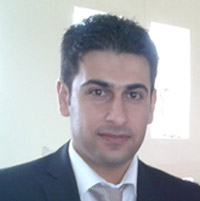 Dlsoz Hawrami
Dlsoz Hawrami




